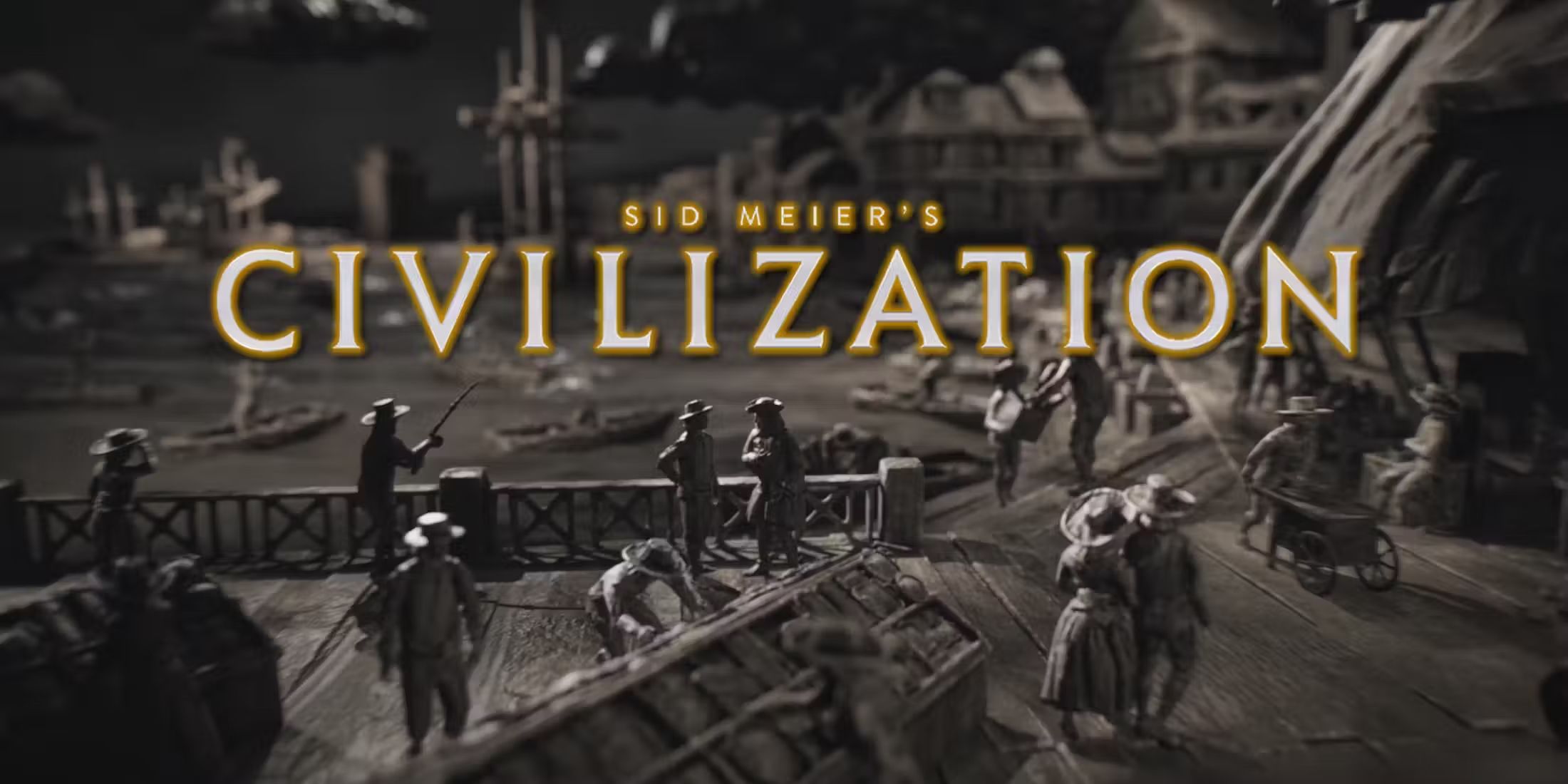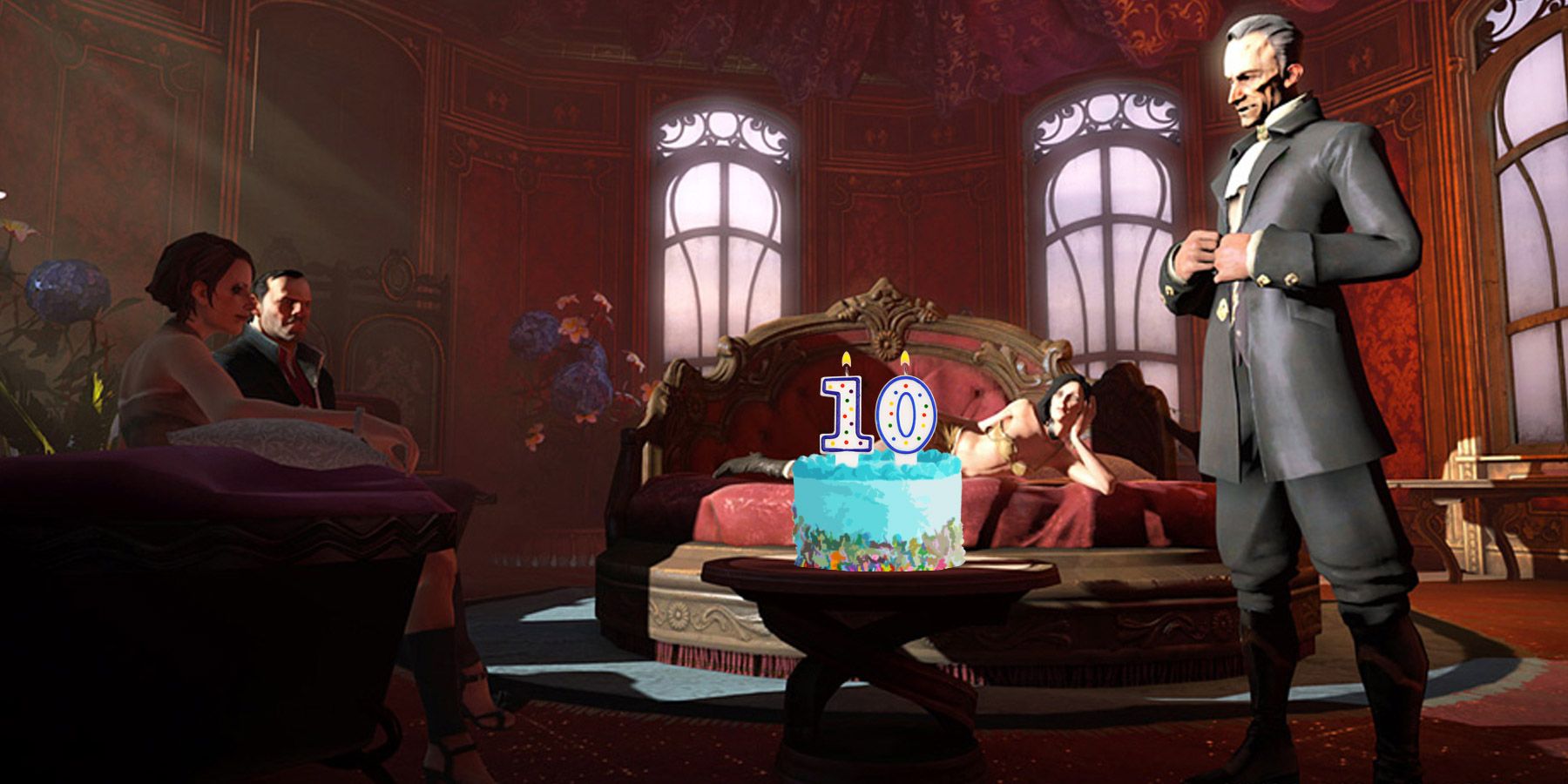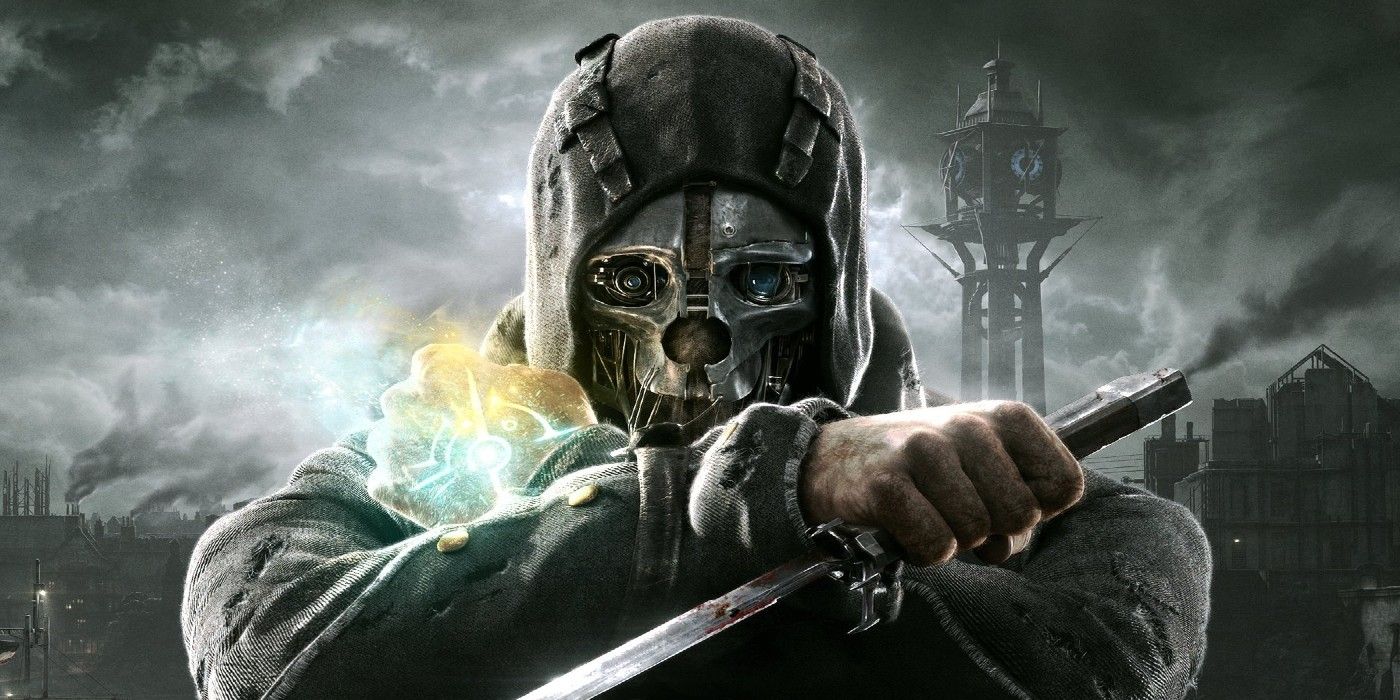Video games have long prided themselves on having worlds that react to a player's actions, but few have managed to bring that aspiration to life the way Dishonored did 10 years ago. While it received praise for its well-designed stealth mechanics, beautiful art design, and rich lore, that world makes the game stand out among others of the time, a feature that has aged as well as the rest of the Dishonored experience.
Arkane Studios has an impressive history as a developer, but it made its name known as a contemporary AAA studio with Dishonored in 2012. The game was a commercial and critical hit, and the studio has gone from success to success since. Dishonored was released at a time when morality systems were becoming increasingly common, but what it got right more than others was creating a system that went far beyond a simple distinction between right and wrong.
Dishonored's Chaos System Goes Beyond Good and Evil
To describe the Chaos system in Dishonored as a mere morality system reduces its intricacies. The system is affected by protagonist Corvo Attano's decisions for who to kill or spare, and how to handle guards on the way to those targets, with its effects manifesting measurably in the game world. It's that impact that helps set it apart from the morality systems of other games. Dishonored doesn't just verbally or visually remind the player of their decisions via story or exposition, the world itself reacts.
The higher Corvo's body count, the worse the plague that has befallen Dunwall City gets; it showed the impact of actions thematically, with the player's decisions affecting the original source of antagonism in the world. While the extent of its impact was exaggerated for gameplay, it made sense that guard presence increased as bodies piled up, likely resulting in an even worse management of the plague and more violence - all things that could affect the plague's death toll, rats, and weepers.
What's more, it made efforts to leave the moral reaction in the player's hands. Unlike other games where the player character becomes more standoffish and angry as their morality decreases, Corvo is a silent protagonist with no such reaction. The calculations that the player makes, based on the crimes of the person they're dealing with, are taken to be the same calculations that Corvo himself is making. Likewise, NPCs rarely comment on Corvo's decisions beyond Emily and the Outsider of Dishonored, who is deliberately apathetic and morally ambiguous.
It all presents the player with the freedom to choose, but not freedom from consequences. On one hand, it's easier and faster to kill guards, with non-lethal options more likely to get Corvo discovered, but this makes later portions of Dishonored harder due to the intensified pandemic. Similarly, it feels justified to kill those who murdered Corvo's love Empress Jessamine, kidnapped their daughter Emily Kaldwin, and framed him for the crime, but it negatively affects his relationship with Emily and contributes to the Chaos. On the other hand, it seems merciful to spare mission targets, yet those spared often reappear later in more cruel situations.
All these things give weight to the player's decisions without placing them into strict categories of "good" or "bad." Rather, it presents a more complex world where the consequences of actions are shown through clear cause and effect. In doing so, the implication of whether what was done is right or wrong is left for the player to decide - as real-life moral decisions often are. The complexity of the Chaos system was vital in the great worldbuilding that Dishonored is known for 10 years after release.
Dishonored: Definitive Edition is available on PC, PS4, and Xbox One.





